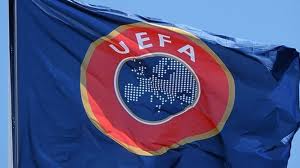By Paul Nicholson
March 28 – The planned UEFA Nations League, scheduled to start in 2018, has been met with caution by the world footballers association FIFpro, and the Association of European Professional Football Leagues (EPFL). Both bodies have issued statements indicating they have reservations over the potential impact of the new format.
UEFA’s 54 national federations voted unanimously at their Congress in Astana to divide the national teams into groups according to their rankings. The new league will replace the friendly matches played by countries which UEFA say have become meaningless and federations have found increasingly difficult to market.
UEFA says there will be no increase in the amount of international matches but the quality of national team football will improve as matches will now be more competitive. Similarly the commercial opportunity will increase with sponsor and TV more likely to have an appetite for a structured international competition rather than one-off friendlies.
FIFPro said it is “concerned about the added strain it will place on the world’s elite players.”
“It should be clear that there is a difference in a friendly match and a competitive match,” said FIFPro Director of Player Services, Tijs Tummers. “As we understand, the Nations League will be another prestigious competition. As a consequence, that implies an increase in the workload for the group of top players.”
FIFPro’s opinion “is that there is no real problem” with the current friendly matches. Instead it says UEFA should be looking at the qualification structure for the main championships (World Cup and Euros).
“What should be thought over is the amount of qualifying matches between teams that have an enormous gap in talent level. Very often you see a match between nations that are more than 100 places separated from each other on the FIFA rankings. Even with the new Nations League, those matches will remain on the International Match Calendar.”
The EPFL is less outspoken but the statement from chairman Frédéric Thiriez indicates that the European league body is likely to have concerns over the impact on its member leagues.
“When additional details on the structure of this competition shall be shared with all stakeholders, the European Leagues will be available to further evaluate with UEFA and the European Clubs the possible sporting and commercial impact of this competition on the football landscape both at domestic and international level,” said Thiriez.
UEFA under Michel Platini has not been afraid to experiment with and adjust its national team competitions.
Euro 2020 will be hosted in cities in 13 countries rather in one or two host nations as previously, major tournament qualification matches will now be held across a ‘Week of football’, while the national team rights have been centralised into one sales agency in a bid to increase revenue and even out distribution.
The new Nations League will significantly add to the commercial sales inventory available and ultimately the income of federations. Packaged carefully, the league could quite quickly have the potential to become one of the world’s premium football products commercially.
Contact the writer of this story at moc.l1745222003labto1745222003ofdlr1745222003owedi1745222003sni@n1745222003osloh1745222003cin.l1745222003uap1745222003

